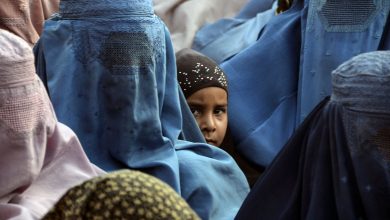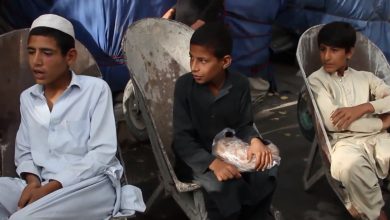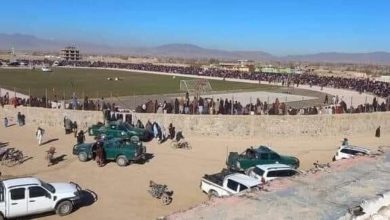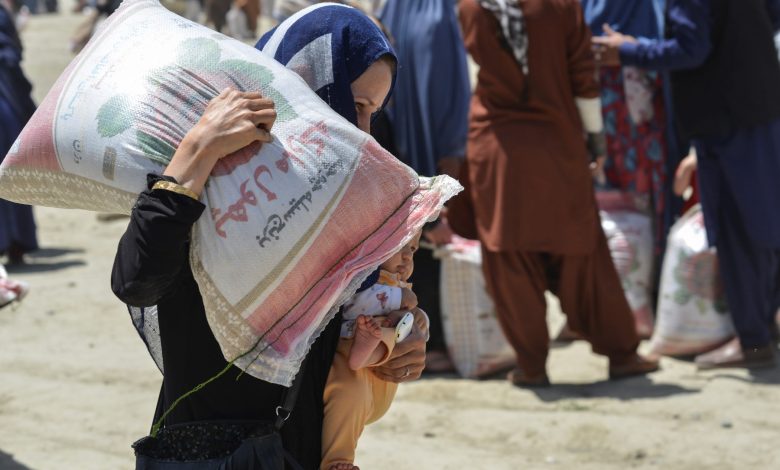
Difficult economic conditions for women: Why is there no fundamental use of humanitarian aid?
By Sughra Sadat
Bayan News – Some female entrepreneurs say that their products have not received any domestic or international support in the past two years, and due to lack of marketing and high government costs, their businesses have struggled and faced stagnation.
Zahra Sadat Hussaini is a female entrepreneur who has established a home-based business in western Kabul, bringing together employed women. She has been active for ten years and markets her products, which include clothing, to the public.
Ms. Sadat and her team are striving to provide economic assistance to their families through their economic activities and, on the other hand, to establish a presence in the market.
However, the recent developments over the past two years have affected the progress of their work. There is no existing job market that receives government support as a domestic product, nor is there significant support from domestic or international institutions.
The fact that women and girls have been marginalized by the recent developments and the current regime is a separate issue. However, international organizations that have been advocating for the protection of Afghan women have failed to demonstrate effective long-term employment and economic support for women.
Most of the projects announced under the banner of economic support for Afghan women and girls have been more of a show, and the majority of the funds allocated to these projects have been wasted by domestic and international organizations.
Ms. Sadat states that in the past two years, no institution has provided support for women’s activities, except for a few limited organizations. She emphasizes that international organizations have not truly supported women’s economic self-sufficiency, except for producing a few reports on women’s issues, which have not had a significant impact.
This female economic activist says, “What women in Afghanistan need in the current situation are long-term employment programs, and this opportunity can be provided through humanitarian aid. This aid should not be wasted by distributing a few bags of flour and oil; instead, it should focus on addressing the fundamental problem.”
Ms. Sadat believes that international organizations should engage with Afghan women and conduct needs assessments to ensure that humanitarian aid is utilized appropriately to support women.
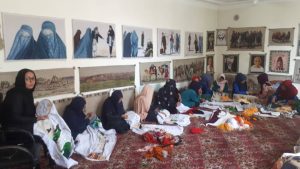
In the past two and a half years, Afghanistan has received increased attention from the global community, with the basis of this attention being the expansion of the humanitarian crisis and the collapse of the economic system. The reduction in international aid has led to a growing number of people in need in the country.
International organizations have published numerous reports during this period on the humanitarian situation in Afghanistan, particularly regarding the economic conditions of women in the country, which have indicated that millions of people in Afghanistan are facing famine and hunger.
The economic challenges, lack of development programs, lack of job creation, and increasing poverty are not new challenges for Afghanistan. These issues have persisted for over 20 years due to widespread corruption in the previous regime, the mismanagement of international aid, and other challenges, which have allowed these problems to take root.
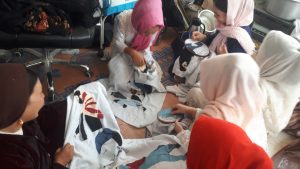
In addition to the previous Afghan leadership, international institutions and organizations have also played a significant role in these challenges. They have created a perception of Afghanistan as a corrupt and unstable country and have often misused international aid by diverting it away from foundational and developmental areas that would benefit the Afghan people.
The report also includes the perspective of an independent businesswoman, Fatana Bayat, the head of the trading company “Fatana Bayat.” She states, “Since the fall of the republic, unfortunately, our activities have not been going well. The office has been open and closed intermittently. Our employees are working online from their homes, and our central office and branches are closed.”
Bayat further explains that during the republic era, their domestic products were exported abroad, but in the past two years, their exports have been halted. She adds, “We have customers, but there used to be a banking system for transferring merchants’ funds, which is not currently available.”
She states that international organizations do not act in line with their slogans of supporting women economically in humanitarian aid processes because these projects are mostly subject to intermediaries and are wasted.
According to Ms. Bayat, humanitarian aid does not contribute to the long-term empowerment of women. Institutions put a few women under their coverage for a few days, archive their images, and report to their supporters as if they have done something for Afghan women, while such help never benefits and empowers women.
However, according to statistics from the Ministry of Industry and Commerce under the Taliban, at least five thousand trade activity licenses have been issued in the names of women in the past two years. Although this statistic is significant, what matters is the support for them and the tangible impact on women’s economic sphere, which has not been substantial.
On the other hand, the United Nations Development Programme (UNDP) stated in a report that with the restrictions imposed on women, more than half of Afghan women have lost their livelihoods and are facing an economic crisis.
After coming to power, the Taliban interim government prohibited women from working in domestic and international non-governmental organizations.




